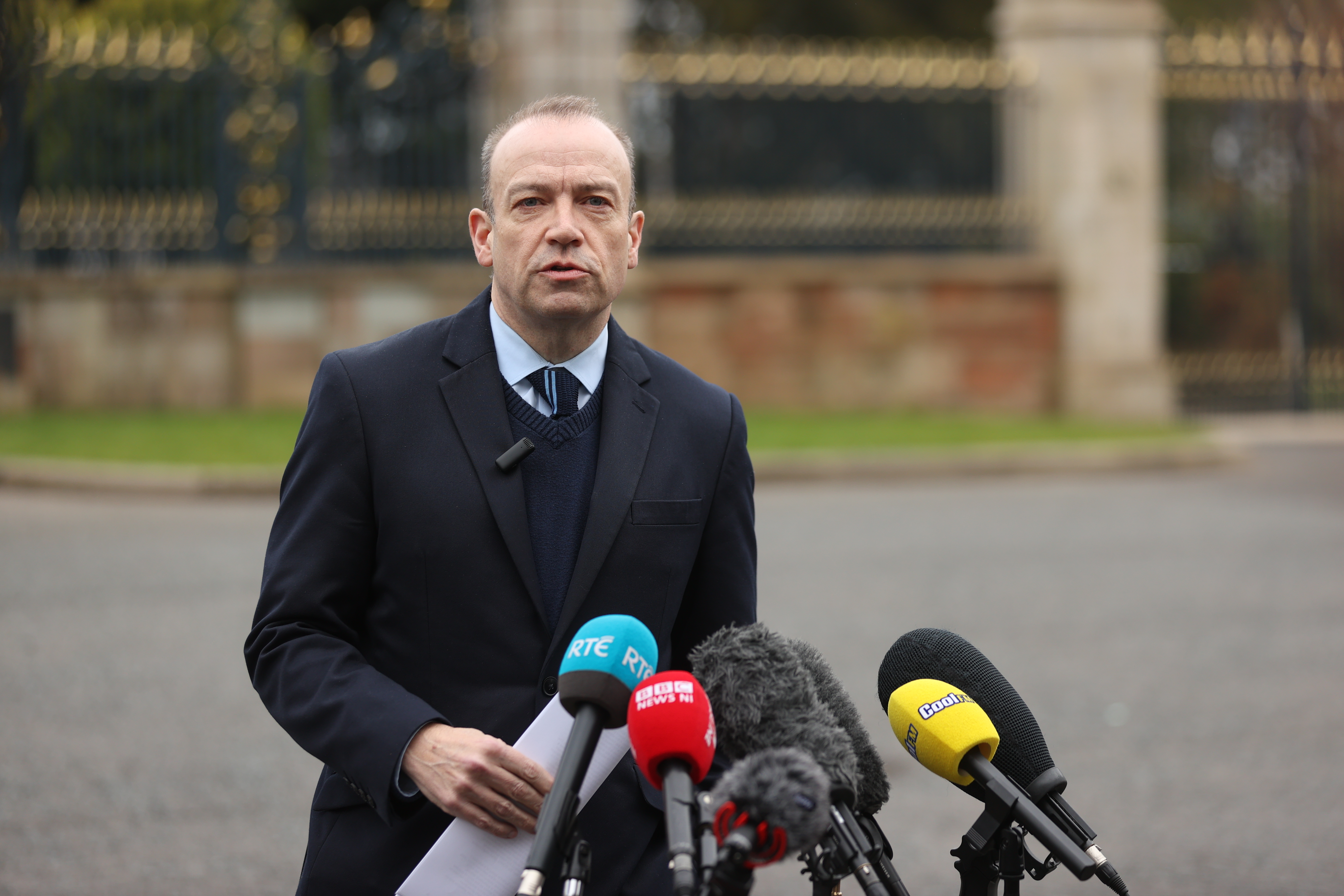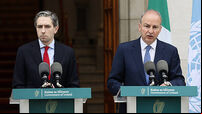British government denies flat cash budget for North is 'punishment' for Stormont ime

David Young, Cillian Sherlock and Claudia Savage, PA
The British government has denied a flat cash budget for Northern Ireland is punishment for Stormont’s powersharing ime.
The funding settlement allocated to the North by Britain's Northern Ireland secretary Chris Heaton Harris is broadly in line with last year’s budget, with the total down 0.4 per cent on 2022/23.
Two Stormont departments secured slight increases in funding and seven had their 2022/2023 baselines cut.
However, with inflation soaring in the last 12 months and Stormont facing a range of additional pressures, including a series of public sector pay demands, the budget is likely to result in significant real term cuts to public services.
Mr Heaton-Harris had responsibility for setting the Stormont budget due to the absence of devolved ministers in Belfast.
Devolution is currently in abeyance as a result of a DUP boycott of the institutions in protest at post-Brexit trading arrangements.
Mr Heaton-Harris met the five main Stormont parties at Hillsborough Castle on Thursday to discuss the budget picture.
Tory Budget devastating for workers, families and economy - Murphy https://t.co/9Xs3j4pNsL @conormurphysf pic.twitter.com/b8iLUFhj
— Sinn Féin (@sinnfeinireland) April 27, 2023
Afterwards he said the settlement was better than had been anticipated due to Treasury “flexibility” on the timeframe for paying back a £300 million Stormont overspend from last year.
Asked whether the budget was punishment for the lack of devolution, he said: “The purpose was not to punish anybody with this budget.
“The purpose of this budget is to make sure public services can continue in the absence of an executive.
“Now I do want to see an executive up and running and that’s why we continue to have talks with the DUP representatives and let’s see where they lead to.”
Sinn Féin former finance minister Conor Murphy said: “If the idea of this is to punish the DUP for not being in the Executive, the only people who will suffer as a consequence of this will be people who rely on public services or people who deliver public services.”
DUP leader Jeffrey Donaldson expressed concern the British government was “playing politics with public services”.
“I think it is wrong for the government to punish people in Northern Ireland,” he said.

He added: “I think it is regrettable if this budget is being used to play politics with our public services. No-one should be doing that.”
Civil servants who are currently running Stormont departments had been bracing themselves for a potentially brutal settlement.
One of the main causes of concern surrounded the need for Treasury to recoup a £297 million advance down-payment it offered to help plug a financial blackhole in Stormont’s finances last year.
It had been anticipated this would have been deducted from this year’s budget.
Mr Heaton-Harris said money would be drawn back in a different way, with the potential for it to be spread over two years.
He said it could be repaid using any future in-year funds allocated to Northern Ireland by the British government through the Barnett process in 2023/2024 and, if that was not enough to cover the cost, then the remainder could be taken from other government-planned spending projects in Northern Ireland or recouped from the budget in the next financial year.
The total non ring-fenced resource budget for day-to-day costs is £14.211 billion, down on the £14.269 billion baseline of 2022/2023.

The overall budget for capital projects is up slightly to £2.24 billion from £2.05 billion in the last financial year.
As expected, the amount allocated to the North's department of health has been protected and is up slightly, to £7.3 billion, as is funding for the department of infrastructure.
The other seven departments have seen their budgets reduced in cash from between 0.5 per cent to 4.2 per cent.
The cuts are not as severe as some departments had been expecting, given the £297 million overspend has not come off the baseline settlement.
The new arrangement means that money that would ordinarily be distributed to Northern Ireland under the Barnett formula for the devolved regions as a consequence of funding increases in England will be retained by the Treasury.
That could have significant consequences for Stormont departments later in the year.
If, for instance, there was a national pay agreement for public sector workers struck by the government, the money that would have flowed to Northern Ireland as a result will now be swallowed up paying off the Treasury down payment.
While Mr Heaton-Harris has distributed the block grant among the Stormont departments, he will not be taking spending decisions needed within individual departments to ensure they balance their books.
Stormont permanent secretaries say they should not be put in the position of having to impose significant budget-balancing cuts, potentially impacting the most vulnerable in society.
They say such decisions should be taken by democratically elected politicians and have urged the government to issue ministerial directions for any major cuts that are required.
But Mr Heaton-Harris has made clear he does not intend to issue such directions, which means the decisions will fall on the civil service until such time as powersharing returns to Stormont.
Civil servants have already been handed some extra powers to take decisions usually reserved for ministers, and Mr Heaton-Harris also tabled legislation on Thursday that seeks to extend those powers beyond their current expiration date of June 5th.
The Bill also gives civil servants some fresh additional powers to undertake preparatory work on introducing new revenue-raising measures in Northern Ireland.
It enables Mr Heaton-Harris to direct civil servants to provide advice and run public consultations on a range of potential measures, such as the introduction of domestic water charges and dropping free prescriptions.
The proposed legislation would not empower the Secretary of State to introduce such measures in Northern Ireland, with the British government at this stage making clear that such decisions should be taken by a devolved executive.












